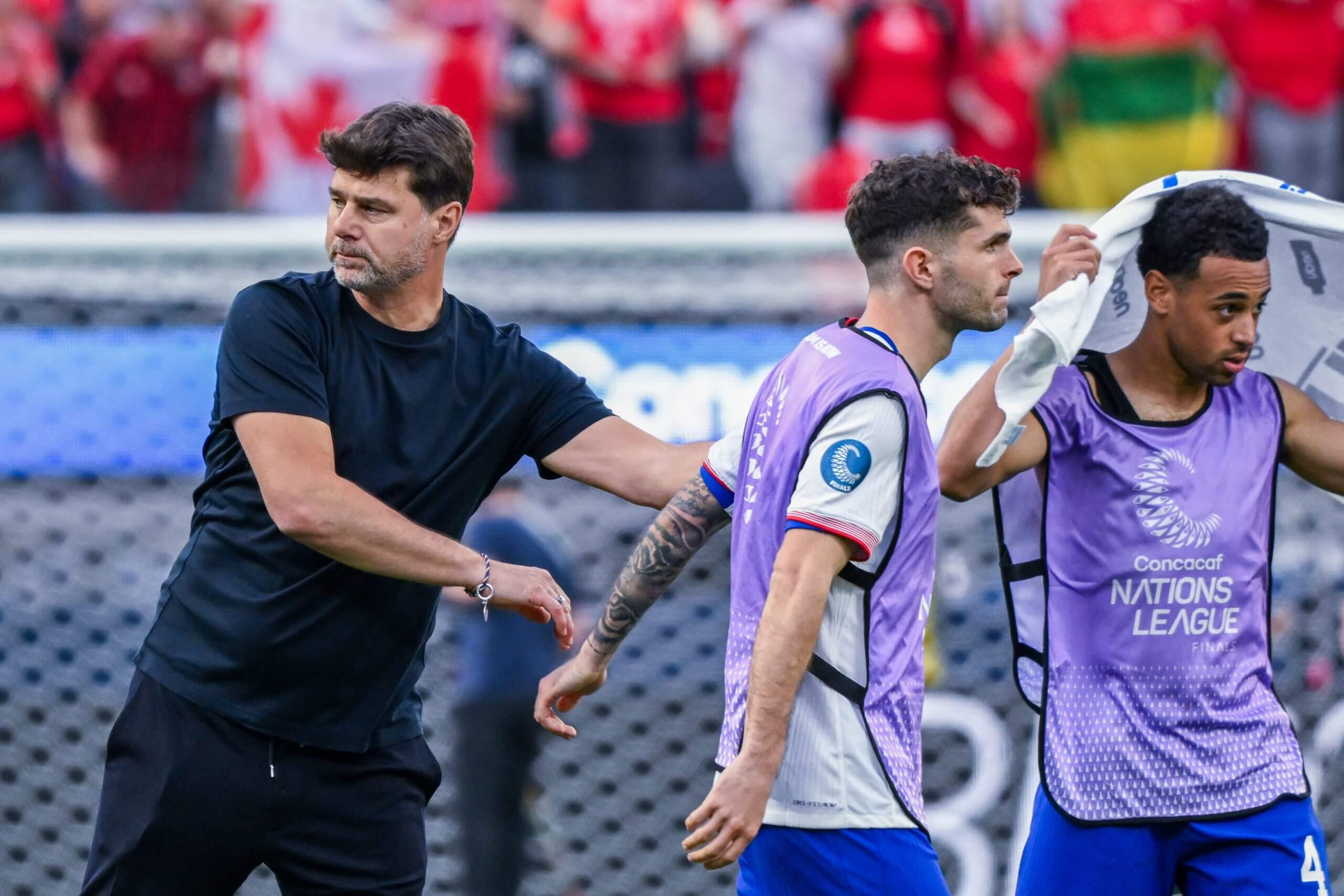
The news coming out of Thursday’s U.S. men’s national team roster release was the names that were missing.
No Christian Pulisic, Antonee Robinson, Weston McKennie, Tim Weah, Gio Reyna, Yunus Musah or Josh Sargent.
The reasons for those absences from this summer’s Concacaf Gold Cup vary. McKennie, Weah and Reyna are playing in the FIFA Club World Cup. Musah asked to be excused due to personal reasons. Sargent was a coach’s choice. Robinson has dealt with numerous injuries this season with Fulham and needed a rest. Pulisic requested to get the summer off after playing another 50-game campaign for AC Milan.
Advertisement
“Many people can say it’s really important for us to be all together for the last time (in a tournament) before the World Cup,” Pochettino said. “But always as a coaching staff we listen to the player and then, of course, we take the decision. We have our own idea in everything, but after the consideration … we decided the best for him, the best for the team, the best for the national team is the decision that we made.”
The larger message from Pochettino, though, was clear — both for the players who were absent and the ones that were going to be in camp.

Christian Pulisic won’t be involved in the USMNT’s Gold Cup quest this summer. (Photo by Shaun Clark/ISI Photos/USSF/Getty Images)
“The important thing is to provide to the new players the possibility to challenge,” Pochettino said. “And to challenge the possibility to take a place. My first conversation we are going to have on (June 1) when we are all together is: ‘Listen, guys. You have the possibility to defend your place. When you are now in the national team, it is not because you are here to try to replace people that (are) sure that (they are) going to be here. No, you have the possibility to defend your place. How you are going to defend your place, that is the important thing for us. You need to fight, you need to show attitude, the right attitude, but not only that, perform, and be brave, and follow the rules that we set in the group.’
“I think it is really important for us. And of course they need to know that they … are going to compete in a fair way with different people that maybe are not involved today in this squad.”
In other words: Fight like this is your job to lose, not your job to win. Because no one is guaranteed a spot on this U.S. national team.
The performances in March in the Concacaf Nations League finals, when the U.S. lost to both Panama and Canada, left plenty to be desired and room to see more desire from the group. That is what Pochettino seems to be seeking. His praise of Diego Luna’s approach in the last camp was about the RSL midfielder’s passion as much as his on-field play.
The names being brought into this camp seem to be a bid to inject more of that into a group that needs it. There are players like Sebastian Berhalter, the son of ex-U.S. coach Gregg Berhalter, who got released by Columbus and Austin and has earned his call-up with his strong form for the Vancouver Whitecaps; Luna, who has spoken often about constantly feeling like he needed to prove himself; and Alex Freeman, the son of a Super Bowl winner who will get a chance to make his national team debut amid a breakout season in Orlando.
Advertisement
“Obviously those thoughts have crossed my mind,” Freeman said when asked last week by The Athletic about a potential USMNT call-up. “It just gives me more to work for, more to strive for. It would be a dream to play for them.”
The value of this Gold Cup could be finding the right mix of hungry players for the World Cup squad in order to offset a core that has at times been considered a “golden generation.” The utility is in creating the right culture within the group.
Pochettino has made clear that he doesn’t care where players play their club soccer. Asked about a handful of European-based players who were not on the team, Pochettino said they are “at the same level as some of the players that are now involved in the roster.”
“My feeling in all these camps — from October, November, January and March — I think many players, they took the chance and deserve again to come back,” he said. “Because they not only performed and behaved well in the camp, after that they kept performing in their teams.”

Pochettino is hoping for a bounce-back summer for the USMNT, a year out from the World Cup it will cohost. (Photo by Erich Schlegel/Imagn Images)
Pochettino continued rolling in his answer, thinking back on a previous question asked. His response spoke plenty about where he thinks this team can improve and the type of players he’s seeking to improve it.
“In a previous question you asked: Is (this squad meant) to punish or say ‘pay attention’ to some players? I think what we want to create in our national team is people desperate to come, but desperate to come to perform,” he said. “To perform means follow the rules, create a good atmosphere, be part of the team. Be able, in every single aspect, (to meet) our (federation) demands … and understand that it’s possible (this could) be the last possibility to be with us. Because (in most windows) we only have time to come to maybe train one, two, three times, then play. One, two recovery sessions and then play. And then go home and maybe wait two months to be all together (again). If you arrive to the camp and you want to spend a nice time, play golf, go for a dinner, visit my family, visit my friend. Is that the culture that we want to create? No, no, no, no, no.
Advertisement
“What we want to do is to go to the national team, arrive and be focused. And spend all my focus and energy on the national team. Because we need to create this culture about winning and we need to chase our aim. If we want to be good in one year’s time, we need to think that today is the most important day, because we need to build from today our way to arrive. It’s not to say, ‘OK, I wait, I wait, I wait. No, the World Cup is in one year. It’s in six months. It’s in one month.’ And then it’s late.
“That is why I think it’s important to have (a) different approach. And for us, I think we learned a lot in the last few camps, for sure in March. And I think it is about maybe using a different way to approach this. These opportunities are amazing. We are so motivated, so excited. That is why I am full of energy. We are full of energy working in trying to create a good group that we can feel proud (of).”
After a string of bad results in major competitions, it’s clear something different is needed. If the result of the Gold Cup is that it injects a different and more competitive culture into this U.S. national team, then it will be an incredibly successful tournament.
(Top photo: John Dorton/ISI Photos/USSF/Getty Images)
This news was originally published on this post .







Be the first to leave a comment